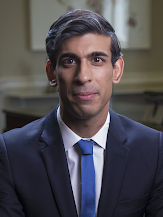HERE are many truths in life. Most of the time it is ever present before us. However, there are people with vested interests who try to distort the truth and lead us on a road of delusion, far from reality. The road of delusion and denial of reality often ends with misery and sufferings. One such truth that we should remind ourselves and hold on to it steadfastly is the diversity of life.
All we have to do is to simply look at what makes up life. We are familiar with the seven colours of the rainbow. According to researchers, we can see about 1,000 levels of dark-light and about 100 levels each of red-green and yellow-blue. Botanists know the truth about the plant kingdom – there is no single but diverse types of plants that can be categorised in diverse ways.
The same holds true for the animal kingdom and everything else that exists on earth – there is variety and diversity, not homogeneity. If you look at nature, all creatures in nature, plants and animals, do not find diversity a threat to their existence. On the contrary, they accept that diversity is what sustains their survivability and existence on earth. There is no denial.
Humans, however, being the more intelligent being are still grappling with this truth of diversity both in the “secular and religious world views”. We have created various social constructs, ostensibly to assist us to understand human life and human communities better.
Many of these social constructs arise due to the nature of human interaction and the manner in which human beings have evolved over millions of years. Examples of social constructs are ethnicity, religion, languages, culture and so on.
These things exist because we have agreed that they exist. They become the norm and through time are taken to be “normal”. They may not exist in objective reality. For example, the definition or understanding of an “ethnicity” or “race” is clearly a social construct to define a group that has satisfied certain agreed and set criteria.
Is a Chinese baby brought up by Malay parents and embraces Islam and grows up as a Malay, a Malay or Chinese? Likewise what about the Malay baby who grew up as a German in Germany? Asking questions like this will make you understand the concept of objective reality and artificial constructs.
In any event, the moment you understand that there are diverse religions, cultures, languages, and ethnicity in the world, you will be able to peacefully understand and accept the existence of this diversity. You will not make the diversity as a cause for disunity, distrust, stereotyping or hatred. You will be able to see that beyond the clothing of social constructs lies humanity that needs to be awakened and respected.
It is false that all the good people are in one social construct and all the bad are in another social construct. The labels of religion and ethnicity or cultures do not determine superiority, it is the good conduct of human beings. Substance rather than form.
However, we have to be careful of the ignorant but loud and persuasive politicians that lead humans down the road of division and disunity exploiting the artificial social constructs.
These are the kind that sow distrust, hatred and disunity among human beings based on differences of religion and ethnicity. They do this to hold themselves out as champions of one ethnic group against another.
At the end of the day, people will see that these politicians and their own families become enriched to become elites of society at the expense of the divided country. These politicians are often supported by some the religious groups in their societies. Religion can also confer status, power and wealth if properly manipulated.
In Malaysia for example, there are still politicians who play the race card and religious groups who play the religious cards. The abuse of religion sometimes becomes very dangerous in our country where it has bred extremism and even exclusivity.
Shockingly, a decade ago, I have heard a Chinese Muslim academic in this country erroneously argue that Allah has created India for Indians and China for Chinese in allegedly Islamic terms. He was obviously pandering to a Malay crowd to argue that Malaysia is for Malays. These are baseless arguments without any basis in the Quran and Sunnah.
Obviously, this academic has not read the many clear verses in the Quran which teach that our diversity is a blessing and we are required to live peacefully together (Al Hujurat verse 13). That the oppressed in one part of the world have a duty to migrate to another (Surah An Nisa verse 97-100) and that it was Allah’s will to create diversity (Al Maidah Verse 48).
He was obviously equally oblivious to the fact that Allah had also chosen to place the Orang Asli, Kadazan Dusun, Muruts, Bidayuhs, Melanau and 33 other indigenous groups that communicate in over 50 languages and 80 ethic dialects in Sabah. His argument becomes more dangerous because he attempts to frame it in “Islamic” terms. I was too young to rebut then.
If we all take a deep breath and we do not either get drowned in our self-imposed ignorance or in our self-imposed “academic or religious” arrogance, our sense of compassion within each of us will allow us to embrace the rightful place of the other. Let us work towards that instead of being trapped by those who use secular or religious tricks to divide us.
END.

